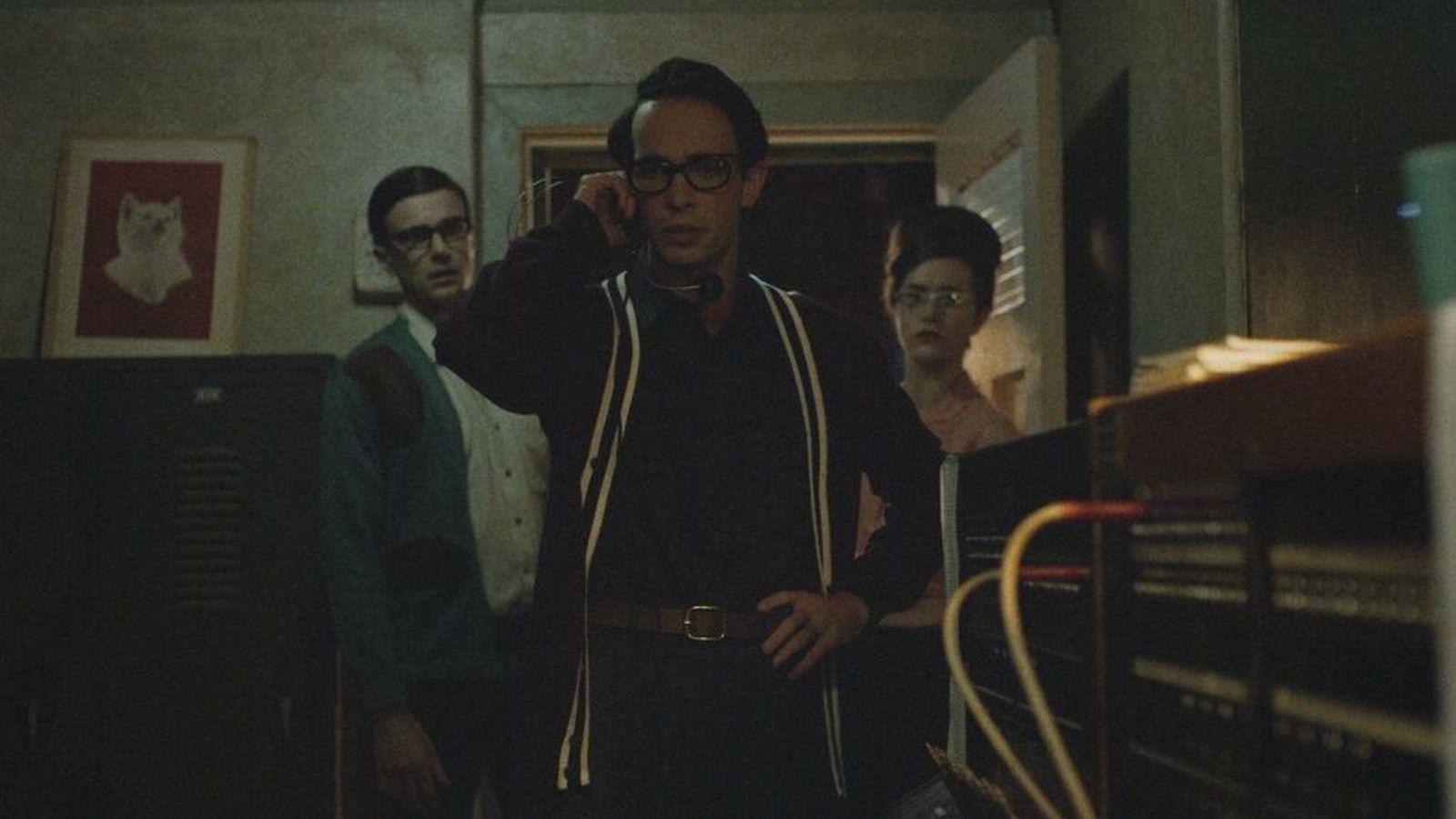Lucy has three big problems: 1) Desi might be cheating on her. 2) She’s pregnant, which in the 1950s was television taboo. 3) She’s being accused of communism. Communism in America is the kind of thing that says, “You think pregnancy is taboo? Hold my drink.”
I remember only enough of “I Love Lucy” to recognize this ain’t it, chief. Nicole Kidman and Javier Bardem resemble the on-screen personas of Lucille Ball and Desi Arnaz the way a chicken nugget resembles a hen. Nicole Kidman looks like what Lucy might have looked like were the show made in 1995. Javier Bardem is the Frankenstein’s monster version of Desi. Turns out, however, all of that wasn’t so important. Only a fraction of Being the Ricardos is devoted to the taping of an “I Love Lucy” episode, and most of that time is devoted to the politics off screen for which Kidman and Bardem have been perfectly cast; while it’s clear that Bardem put no effort into learning how to play musical instrument for this part, nor did Kidman even mock the patented shrillish Lucille Ball whine, there is little doubt that these two behaved very much as their biographical counterparts off-screen and off-stage.
The movie chronicles a week in the life of Lucy and Desi. It begins with Desi returning late from a “fishing trip” and Lucy being accused of Communism in newsprint and ends with what may or may not be a live episode depending on how the whole Communism thing plays to the fans.
The film loves Lucy almost as much as the title suggests. She’s portrayed as strong and intelligent (if a bit jealous), but mostly shrewd; this is a person who knows her business better than any writer, any director, or any suit. Over the script reading intro, she questions word choice, motivation, and staging. Outside of show mechanics, she has conversations with producers and investors. She always seems to have the upper hand. If Desi seems a little lost, it’s only because he is and Lucy has to remember not to upstage her husband so consistently on and off camera; it’s bad for his ego. Aw.
The film climbs backwards for relevant details when necessary. How did Lucy get her own show? How did she become so powerful in a man’s world? This is the part where it’s a shame that Nicole Kidman is a dramatic actress and not-so-much a comedic one; the story is much more believable when we accept that Lucille Ball is the funniest woman in the world.
Writer/director Aaron Sorkin has a wonderful way of making the historically obscure relevant. I dunno how many Americans hold cherished memories of “I Love Lucy.” I sure-as-Hell don’t and I suspect you gotta be at least Boomer age to ride that attraction. And, let’s face it; most of my generation is suspect of anything that pre-dates Atari. And for good reason – back and white television was “good”? Ha! Prove it. You only had three channels and all the writers were white male chimneys. However, thanks to GOP idiocy, Communism has made a bold return to the accusation list. In the Republican world, attacking the Capitol or shooting a few protestors holds no negative consequences, but being accused of “Communism” –whatever that is- will cost you elections.
I cannot say I loved this film. Sorkin’s The Trial of Chicago 7 was both a better picture and more relevant to where we are as a nation. “I Love Lucy” is a remnant from a generation that truly believes the 1950s were the best time to be Americans. Give me “Rick and Morty” over “Leave It to Beaver” any day of the week. Still, it’s hard to overlook the performances, writing, and relevance of Being the Ricardos. I don’t see any Oscars here, nor will I root for any, but Kidman may get a nomination; there are worse things. Many worse.
The comedic redhead wanted all
As was primed for a precipitous fall
How did this girl
Thrive in a mans world?
It took some king-size Lucille Ball(s)
Rated R, 131 Minutes
Director: Aaron Sorkin
Writer: Aaron Sorkin
Genre: What comedians might look like if played by people who aren’t funny
Type of being most likely to enjoy this film: People nostalgic for old TV and eternal scapegoating
Type of being least likely to enjoy this film: MAGA



